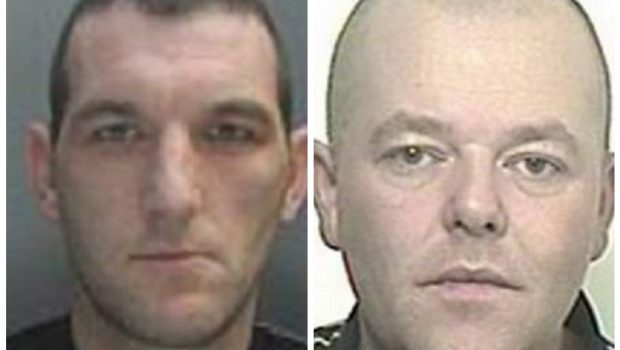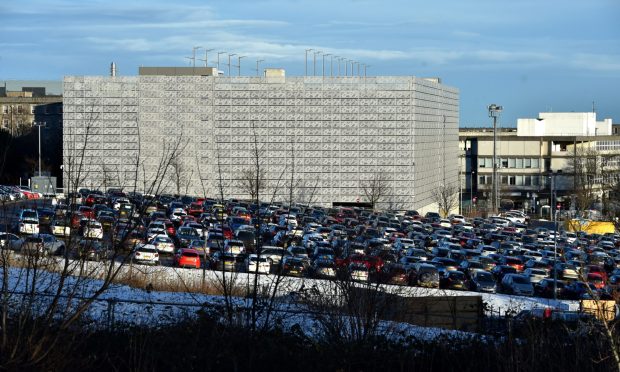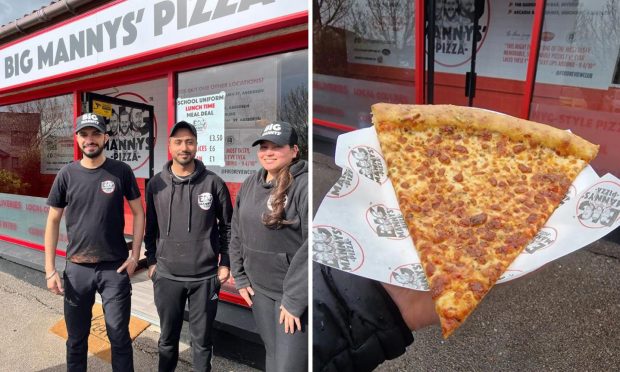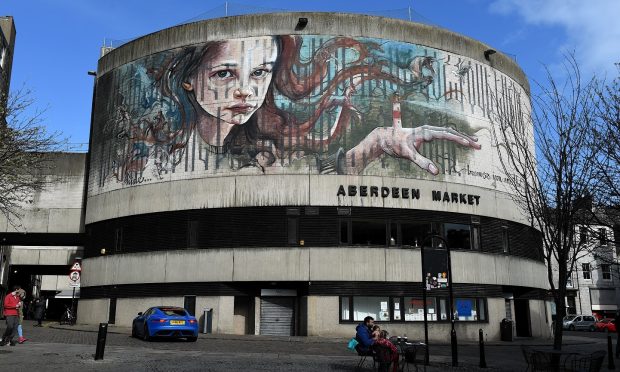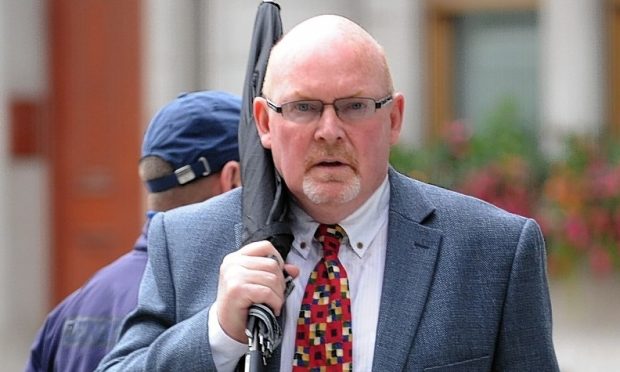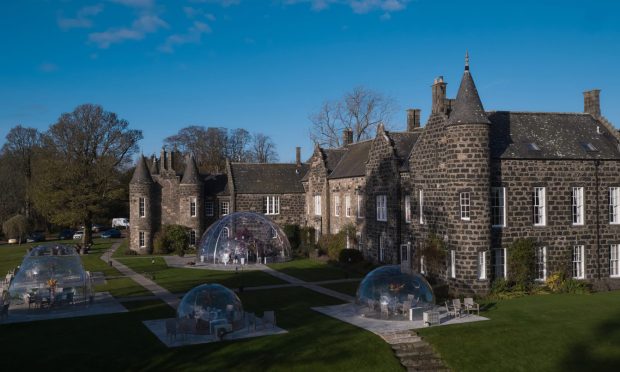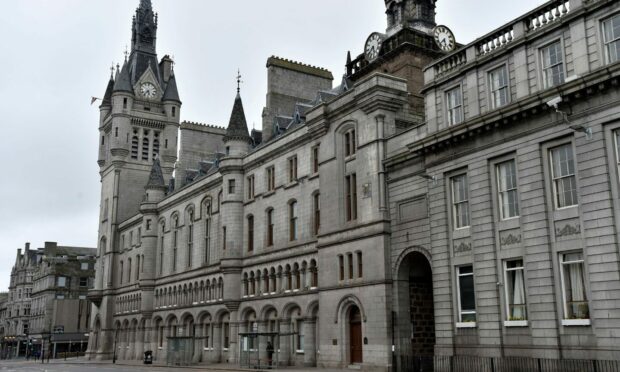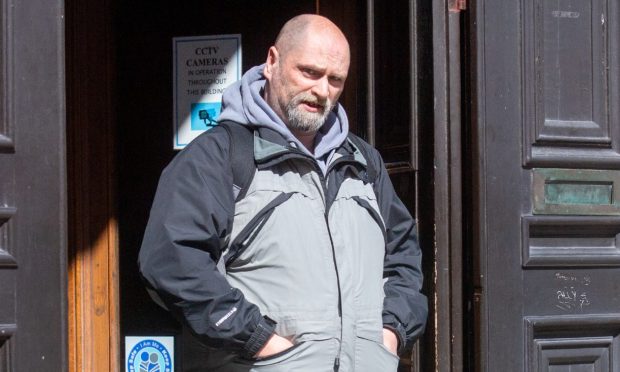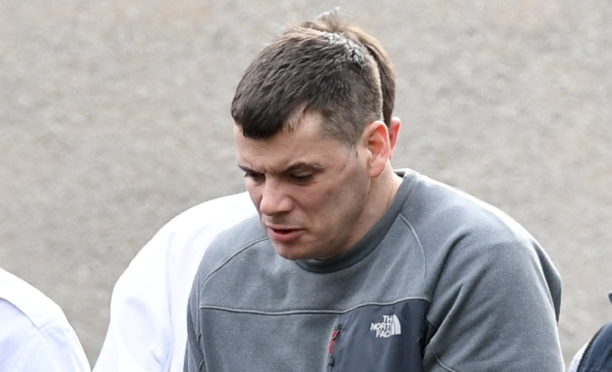The son of a Scots singing star and a top north-east businessman was duped into providing a hideaway for a gang of ATM raiders.
The Liverpool-based crooks used explosives to blow up cash machines in a series of audacious heists all over the north-east and stole tens of thousands of pounds.
Joseph McHale, Kevin Schruyers and Robin Vaughan struck in the early hours in Stonehaven, Inverurie, Aberdeen, New Deer and Ellon.
And they fooled Francis Clark – the son of entertainer Fiona Kennedy – into giving them a safe haven at a small village on the Buchan coast.
Mr Clark met 43-year-old Vaughan at a party in Aberdeen and they exchanged phone numbers and kept in touch.
When Vaughan phoned in August 2013 and asked if Mr Clark if he and three or four of his friends could stay at a chalet he owned beside the golf course at Cruden Bay he was not suspicious.
Mr Clark, 28, told the High Court in Glasgow: “They said they were up here to do different things in the oil industry and stayed for a week or maybe 10 days.”
He said at the time he was living at the chalet in Cruden Bay because he was working in Peterhead in the fish industry. His dad, also Francis, has long been a high-profile figure in the processing industry.
Mr Clark told advocate depute Keith Stewart, prosecuting, that he realised what they were doing when he came home from work one day and found Vaughan and others dipping bank notes into a bowl filled with nail varnish remover.
They were trying to remove security dye from the money.
Mr Clark said: “I asked what was going on and they told me they had blown up ATMs.
“They said they used a mixture of oxygen and acetylene. They said they got around £100,000 from one machine.
“I was concerned for my safety and wellbeing, but I didn’t know what to do.”
Mr Stewart asked Mr Clark: “Did you ever see anything that had to do with blowing up ATMs?”
He replied: “A lot of gas cylinders like big oxygen cylinders and lots of registration plates for different vehicles.
“They used to put the plates on different vehicles. I saw them at my house.”
Mr Clark, whose grandfather was popular Scottish singer Calum Kennedy, said the gang left behind a pile of clothing, which he dumped.
After injuring his left hand and arm so badly in an accident in September that he could not even hold a cup of coffee, Mr Clark moved back to his parents’ home near Aberdeen.
And in October he received a series of phone calls from Vaughan.
Mr Clark said: “He just kept saying ‘I’m coming up to Aberdeen. I’m coming up to do machines’. I told him I wanted nothing to do with it.”
He told the court he switched off his phone so Vaughan could not contact him.
The court heard Mr Clark was originally a suspect in the case, but appeared during the trial as a witness.
He spent two nights in custody after he failed to appear to give evidence.
Trial judge Lady Scott considered finding him in contempt of court, but after hearing from advocate Craig Findlater that Mr Clark was not showing disrespect, but had simply forgotten he was due to give evidence, she said: “You have spent two nights in Barlinnie. You are free to go.”
Three of the gang were snared thanks to police intelligence.
The focus of the investigation led to Liverpool after a number of Scottish bank notes started to circulate in the Merseyside area.
Many of them had edges cut off to try to remove the signs of red security dye they were stained with when the ATMs were blown up.
McHale, 38, and Schruyers, 42, were convicted of blowing up a cash machine at the Royal Bank of Scotland in Turriff on September 18, 2013, and stealing £21,020.
They were also found guilty of blowing up the cash machine at the Scotmid Co-operative store in Aberdeen’s North Deeside Road on September 19 and stealing £112,000.
The pair were also convicted of blowing up four ATMs in Ellon, Stonehaven, Inverurie and Aberdeen and attempting to steal from them, and taking a quantity of clothing, golf equipment and money from the shop at the Paul Lawrie Centre in Aberdeenshire.
The duo were also found guilty of attempting to break into a cash machine in Mintlaw by using a crowbar.
Vaughan admitted blowing up the Turriff and North Deeside Road ATMs.
He also admitted the attempted theft at the Mintlaw one.
The court heard that the technique used in the thefts was extremely dangerous and the jury saw CCTV footage of the ATM at New Deer being blown up and debris hurtling from the machine inside the bank.
A fire expert told the jury it was risky even transporting the gas cylinders around.
Neither McHale nor Schruyers gave evidence, but McHale lodged a defence of alibi and claimed he was in England when the crimes were committed.
But the jury did not believe him.
Lady Scott deferred sentence on all three until next month at the High Court at Livingston.
